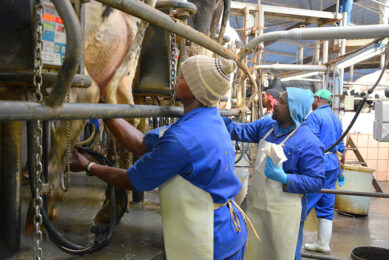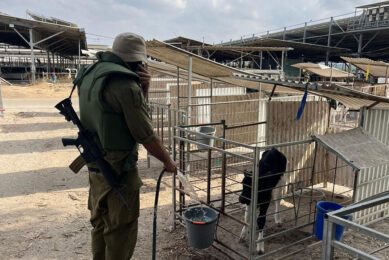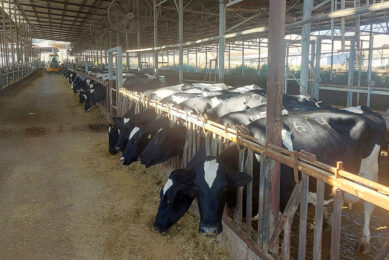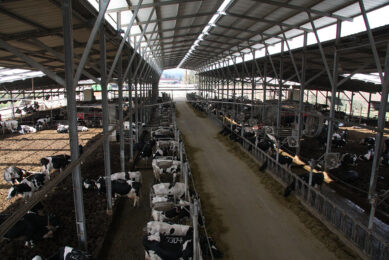Dairy in Israel: How tragedy unfolded on farms
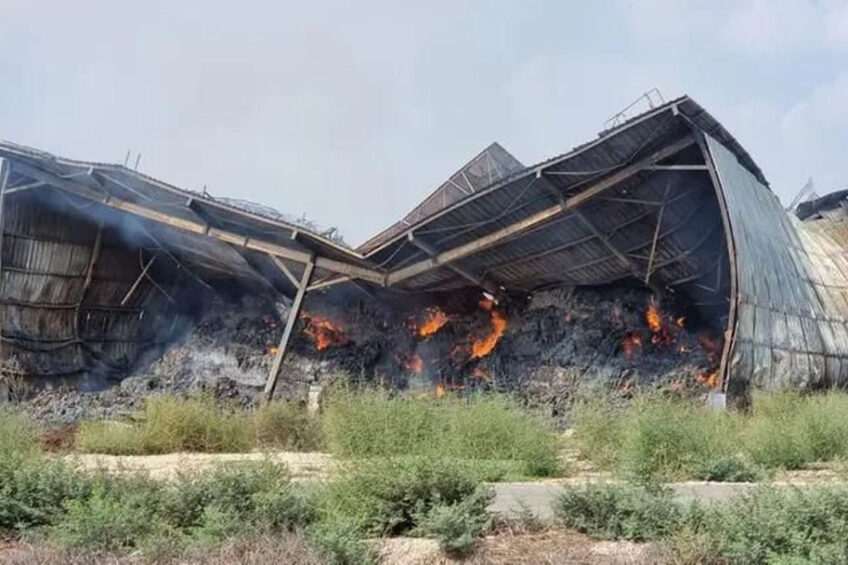
Dozens of dairy farmers and their workers in Israel have been gunned down by Hamas in various kibbutz close to the Gaza border.
When Hamas broke through the border into Israel last Saturday, 7 October, they also targeted dairy farms, slaughtering anyone in sight.
There are 16 farms in kibbutz’s close to the border with Gaza, 5 of which are now in the army’s no-go zone. A kibbutz is basically a small community in Israel normally found in rural areas centred around agriculture, including dairy.
The farms in the no-go zone have been deserted and no one can go there. The cows cannot be fed or milked.
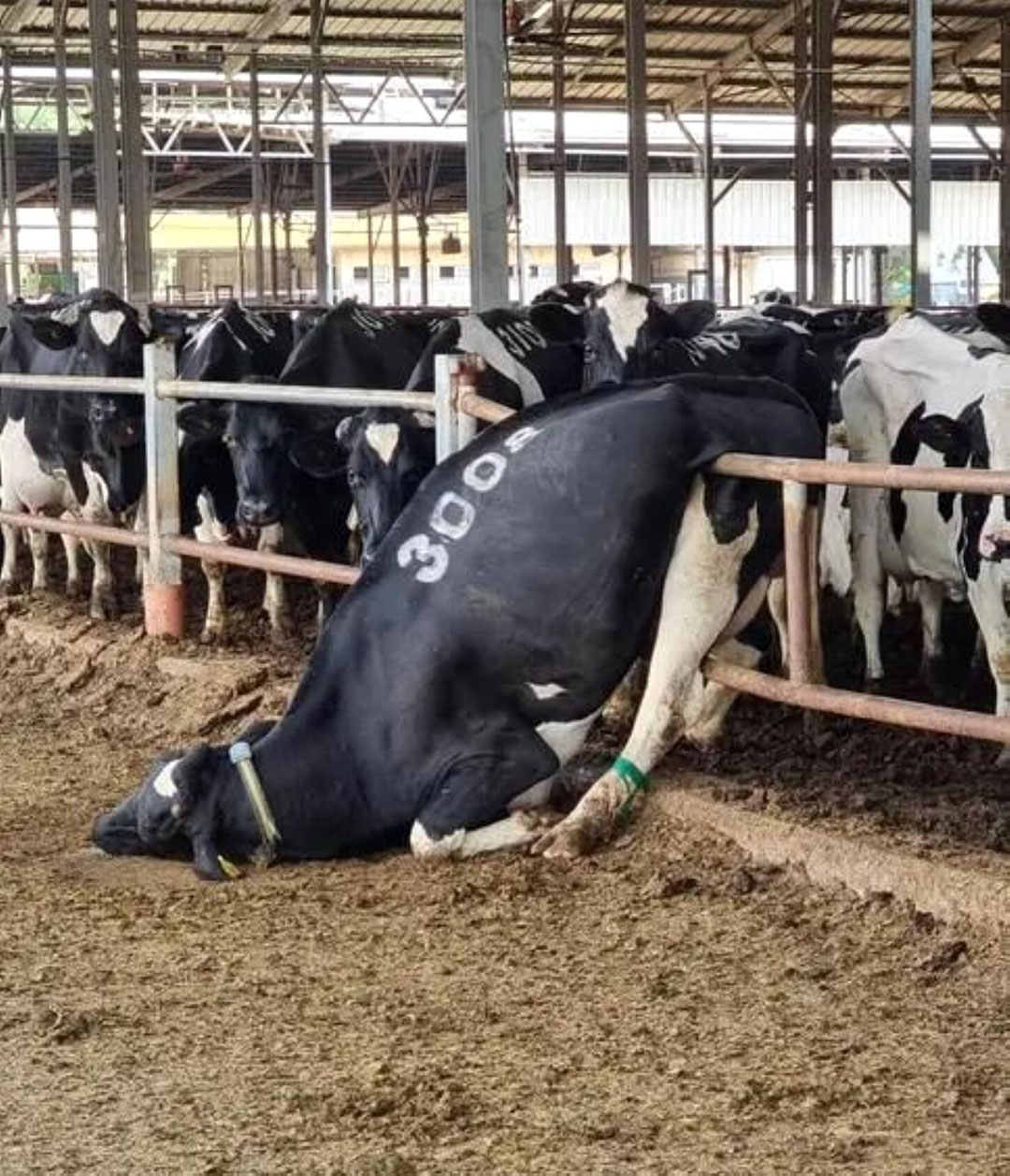
Milking cows, workers from Thailand
The workers were milking the cows during what was a holiday weekend in Israel. The attack was unexpected and ended with workers being shot dead.
Whilst most of the farmers killed were Israelis, many of the workers were from Thailand, some of whom have been kidnapped and taken back to Gaza, or murdered.
Israeli dairy farmers, who use the most up-to-date technology available, are very proud of their industry and have some of the best producing cows in the world.
The country is home to around 115,000 cows producing around 1.6 billion litres of milk per year. There are 2 farming systems in Israel, including 164 kibbutz farms built around the communities, and another 573 larger private farms called moshav farms.
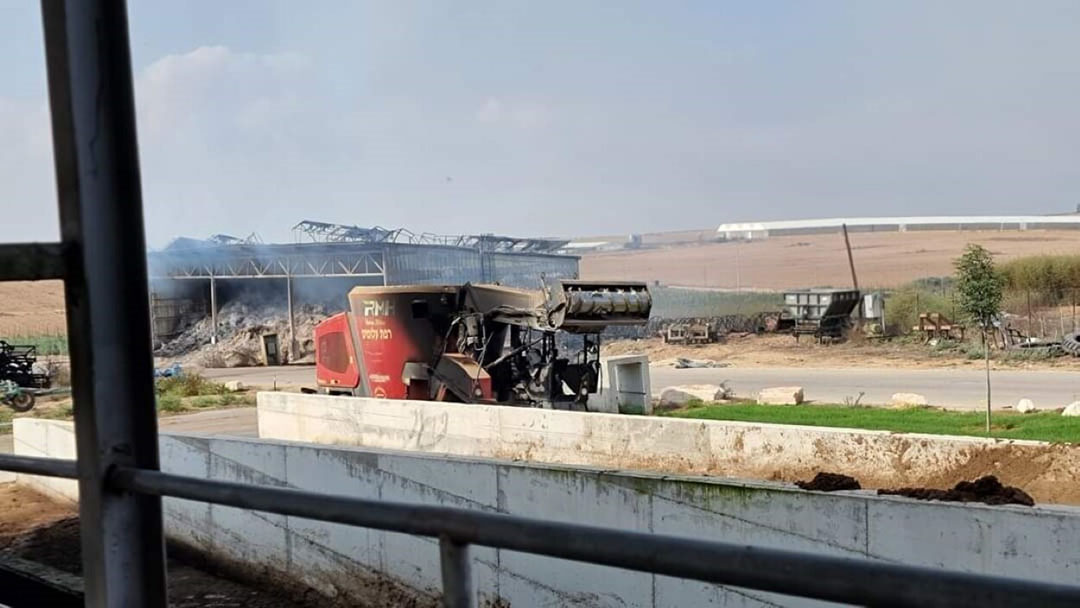
Dairy farming in Israel
Ofier Langer, 67, has run the Israeli Dairy School for the past 13 years. He is proud to have brought in people from over 30 countries educating them on the practicalities of dairy farming, Israeli style, and personally knows many of his colleagues murdered by Hamas.
“It’s hard to take this all in. Hamas entered a number of farms and shot people indiscriminately,” said Ofier, a former soldier in the Israeli army. “The area that came under attack is not just any area as it’s home to 16 dairy farms that produce more than 5% of Israel’s milk. They are home to anything from 350 to 700 cows per farm with average milk yields of 12,500 litres per cow per year. A few of them are even among the top 10 in the country for production per cow.”
Ofier said that all of these farms were attacked. “The loss we have suffered is immense. We’ve lost friends and colleagues – 2 dairy farm managers and dozens of workers were murdered. This is a heartbreaking moment for our tight-knit community. We share the pain deeply,” he said.
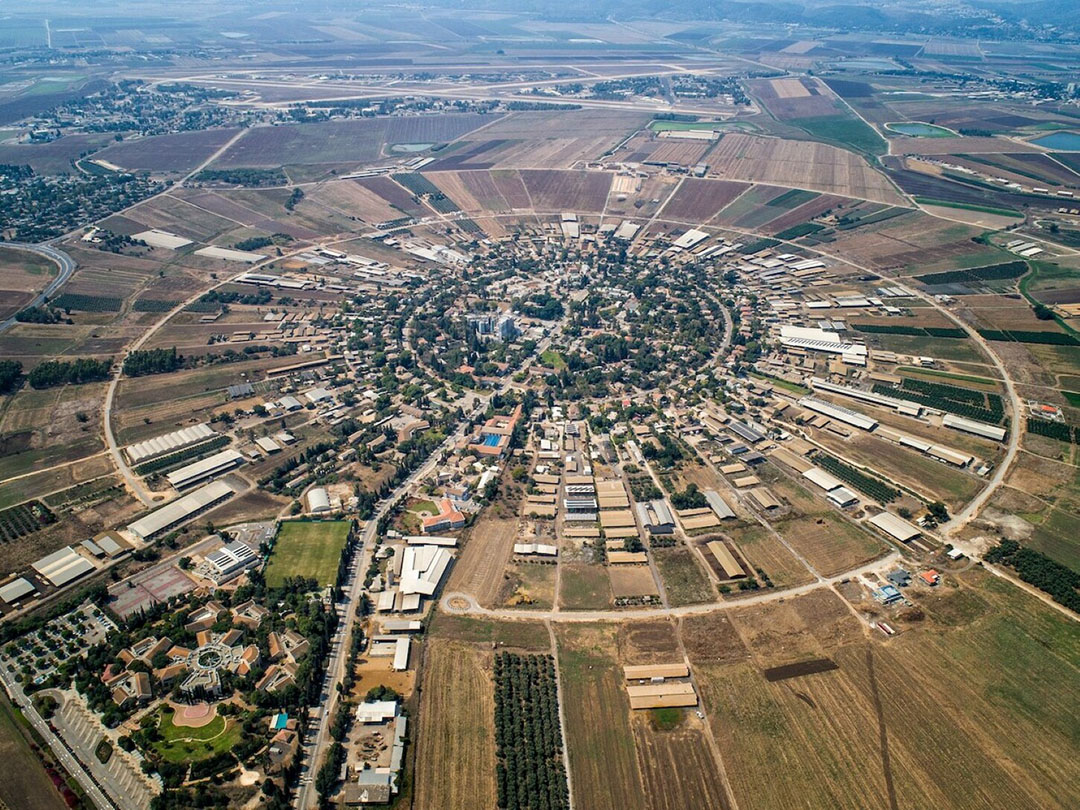
Dairy farms closed off
Ofier added that 5 of the dairy farms closer to the Gaza border have been closed off by the army. “The situation is still not safe. Terrorists are in the area, making it impossible to reach the farms. This has led to a dire situation for the cows, which have gone without food and milking for days. The army tries to feed the cows on these farms by taking hay from the sheds, if it hasn’t been burned, and leaving it out for them.”
There is a glimmer of hope, he says. “The Israeli Institute for Dairy Farming is collecting volunteers from all corners of Israel who are coming together to help. They’re working on the farms we can reach, making sure the cows are fed and milked,” he said.
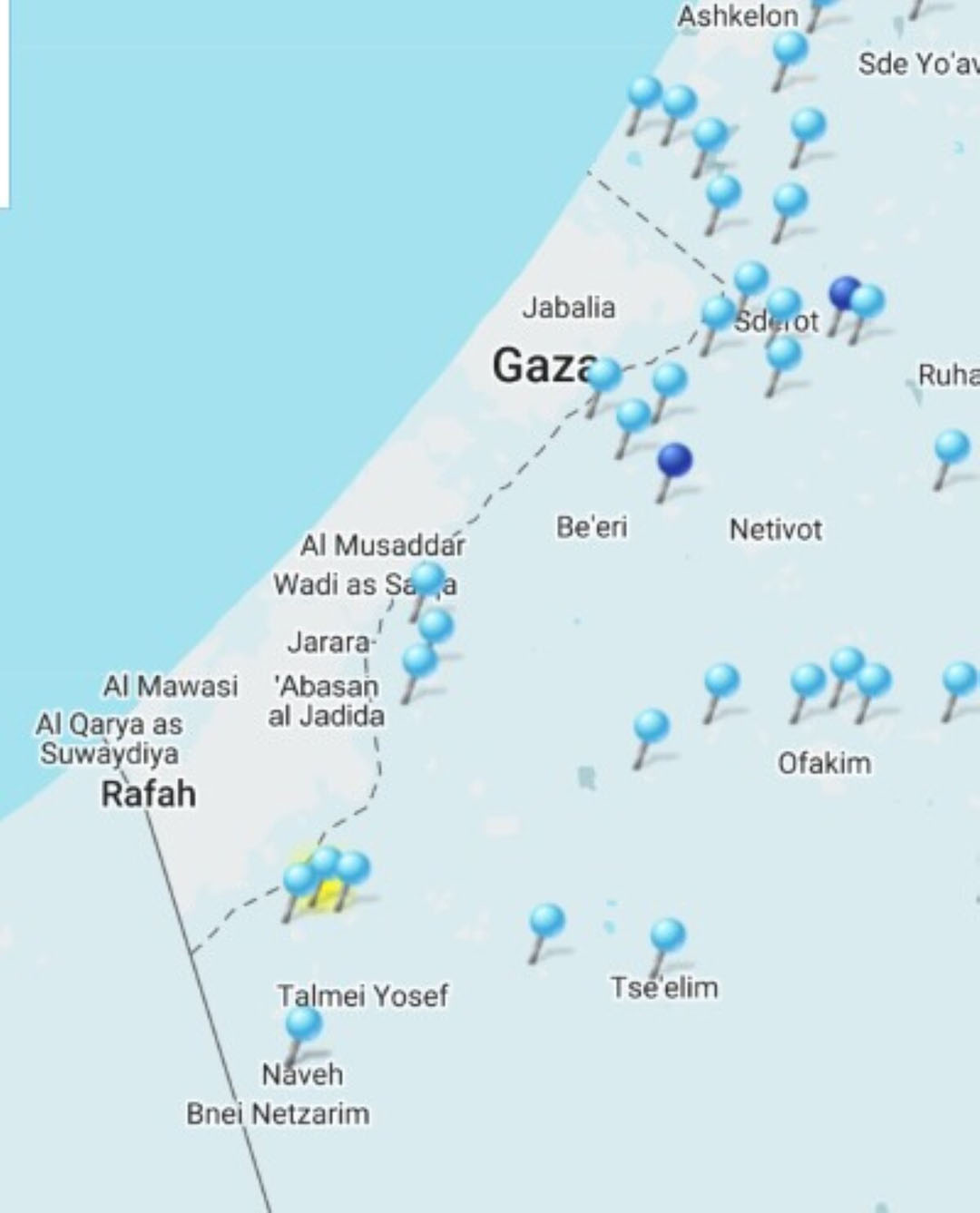
Farm near Gaza border
One of the farms targeted was the Alumim dairy farm situated only 10km from the Gaza border. Farm manager Avi Freiman reported that just as the morning milking was being completed, a squad arrived at the dairy farm, burned the haylofts and feed trucks. He said they threw burning torches into the offices and shot everywhere.
“They fired an RPG missile at the workers’ quarters,” said Freiman. “The milk tank was hit by the shots and all the milk poured out. Anyone who tried to escape was shot. They murdered 16 workers and kidnapped 8 others, all from Thailand. While they were advancing towards the cowsheds, a first responder squad arrived and a 5-hour battle ensued, until 10 terrorists were killed.”
The cows on that farm have not been milked and only recently a truck managed to take food in to give to the animals.
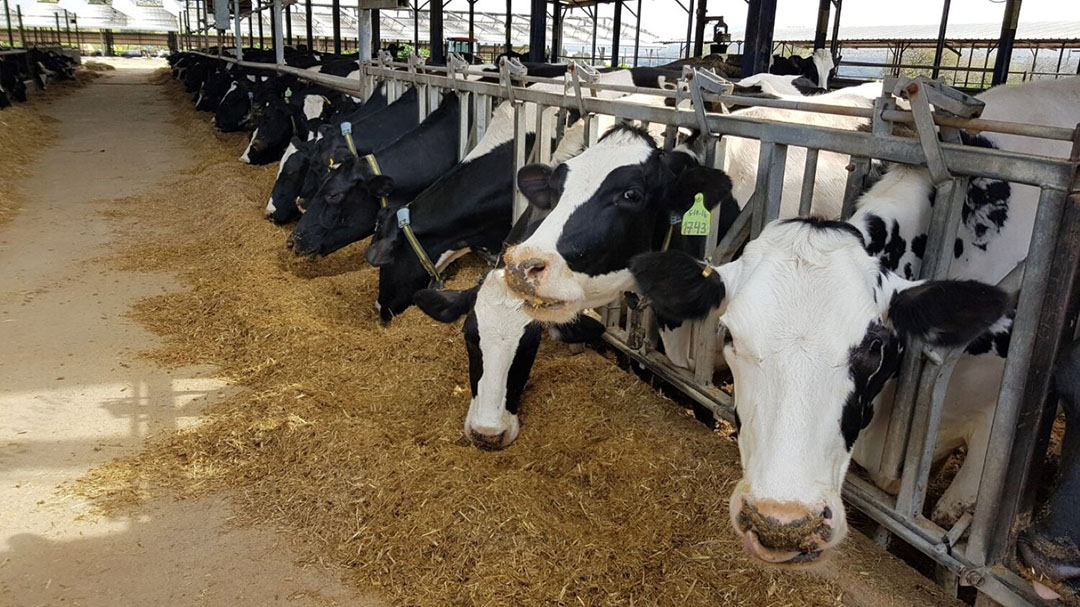
Sivan Lacker, founder of Mutual Dairy Farming in Israel, gave some details about the Kissufim dairy which is located only 2km east of the border with Gaza and runs 380 cows with average production of 12,800 litres.
She said: “On Monday, 9 October 2023, the manager of the dairy, Reuven Heinik, risked his life when he entered the dairy to try to feed the cows. Terrorists ambushed him in the milking parlour and murdered him along with another worker. The terrorists barricaded themselves in the milking parlour. Later, soldiers from the Israeli Defence Forces arrived on the farm and blew up the milking parlour. All the terrorists were eliminated.”
These stories, she said, are only a small part of the horrors that are being revealed at every moment. “The world needs to hear and know what is happening.” she said.



